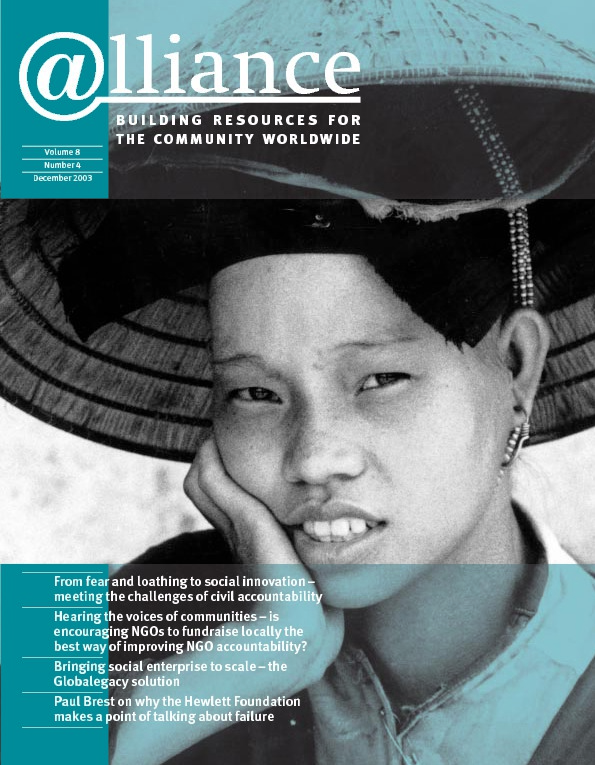In a casebook on partnerships being developed by the Philippine Business for Social Progress (PBSP), a study cited[1] suggests that effective partnerships have a positive impact on governance. The authors agree that a change in governance quality affects policy-making, which in turn affects development outcomes.
This echoes what PBSP has firmly believed for years. In the early 1970s, when PBSP was just beginning and the concepts of transparency and accountability had not yet found their way into the governance vocabulary, PBSP sought ways to make itself and its NGO partners accountable to each other.
Development practice is replete with calls for partnerships. The term is invoked so often that many serious development practitioners now complain it has been abused and lost its essence. In the PBSP study, partnership is understood as an alliance in which parties come together to pursue their common interest, keeping their stake while at the same time respecting each other’s differences. Hopefully, ‘in the process, each party grows, that is, none should become worse off.’[2] It requires mutual goals, positive inter-relationships, critical collaboration and transparency. Above all, the parties must be accountable to each other.
Developing a sense of accountability
Accountability is understood as the state of being answerable for one’s acts and decisions and being able to act according to standards. For non-profits, it means being a good steward of resources and powers vested upon them by their mandate and mission. PBSP wanted accountability not only from its partners but also from itself. It targeted three major areas: project management, operations management and financial management.
As a grantmaker, PBSP wanted its partners to be effective and efficient stewards, able to show that resources are used as or better than planned. PBSP itself wanted to be a role model for its partners. As a membership organization, it wanted to ensure prudent and effective use of the resources entrusted to it.
Developing tools of accountability
Tools developed for PBSP’s NGO partners included a framework and guidelines for project management and implementation; indicators of success and acceptable performance; guidelines for monitoring and evaluation; policies on use of grants and financial advances; and recommended worker-to-beneficiary ratios, considering terrain, local working conditions and workers’ training and experience. Documentation of financial disbursements was a must and a fully functioning board of trustees was a major criterion for project approval.
PBSP itself adopted business rigour in planning, budgeting and reporting procedures. Guidelines and policies on project priorities, approval and termination/closure were developed. For governance, rules were set for the qualification and acceptance of new members, officer elections and senior staff qualifications and roles. In financial management, efficiency ratios were targeted and administrative, overhead and capital expenses were capped.[3]
Partner reactions
Understandably, our partners found these expectations not easy to meet. Many resented them, calling PBSP bureaucratic, technocratic, even ruthless. Borne out of volunteerism, idealism and activism, and seeing their efforts as largely helping the poor, some expected to be treated with unreserved trust and compassion; to be asked to account for outputs and funds was an affront. Their distain for financial reports was common knowledge.[4]
PBSP remained sympathetic but firm. Through feedback it sought to appreciate and address partners’ difficulties. Training courses and technical assistance were developed, coaching and mentoring sessions conducted. Eventually, a course and a partner-specific manual on ‘Management Reporting and Systems Installation’ were developed for PBSP partners.
Working together for mutual accountability
As corporates and NGOs face up to new public demands, it appears that PBSP’s insistence on accountability has led to better governance both for itself and its partners, discernible as greater viability. The fact that PBSP established an internal audit of its operations in the late 1980s, probably one of the first Philippine NGOs to do so, was appreciated by ODA and other donors when PBSP went into funds leveraging. Many partners have now established their own track records. No longer do they call PBSP ruthless; many are proud to have been trained by us. At the same time, through partnerships based on accountability, PBSP has communicated to the public that not only is accountability desirable, it is possible even for NGOs and leads to long-term survival.
1 Joaquin Gonzales III et al (2000) Opting for Partnerships: Governance innovations in Southeast Asia, Ottawa, Canada and Kuala Lumpur. Institute on Governance.
2 Felix Bautista et al (eds) (2001) Building Partnerships for Good Governance (unpublished). Manila: PBSP.
3 PBSP’s financial ratios are much stricter than the government allows for foundations and non-profits.
4 Although resistance to financial reports has now diminished, many NGOs still do not know how to prepare them!
Pedro Roxas is Co-Chair, Center for Corporate Citizenship, Philippine Business for Social Progress. He can be contacted at p.roxas@roxas.com.ph
For more information
http://www.pbsp.org.ph


Comments (0)